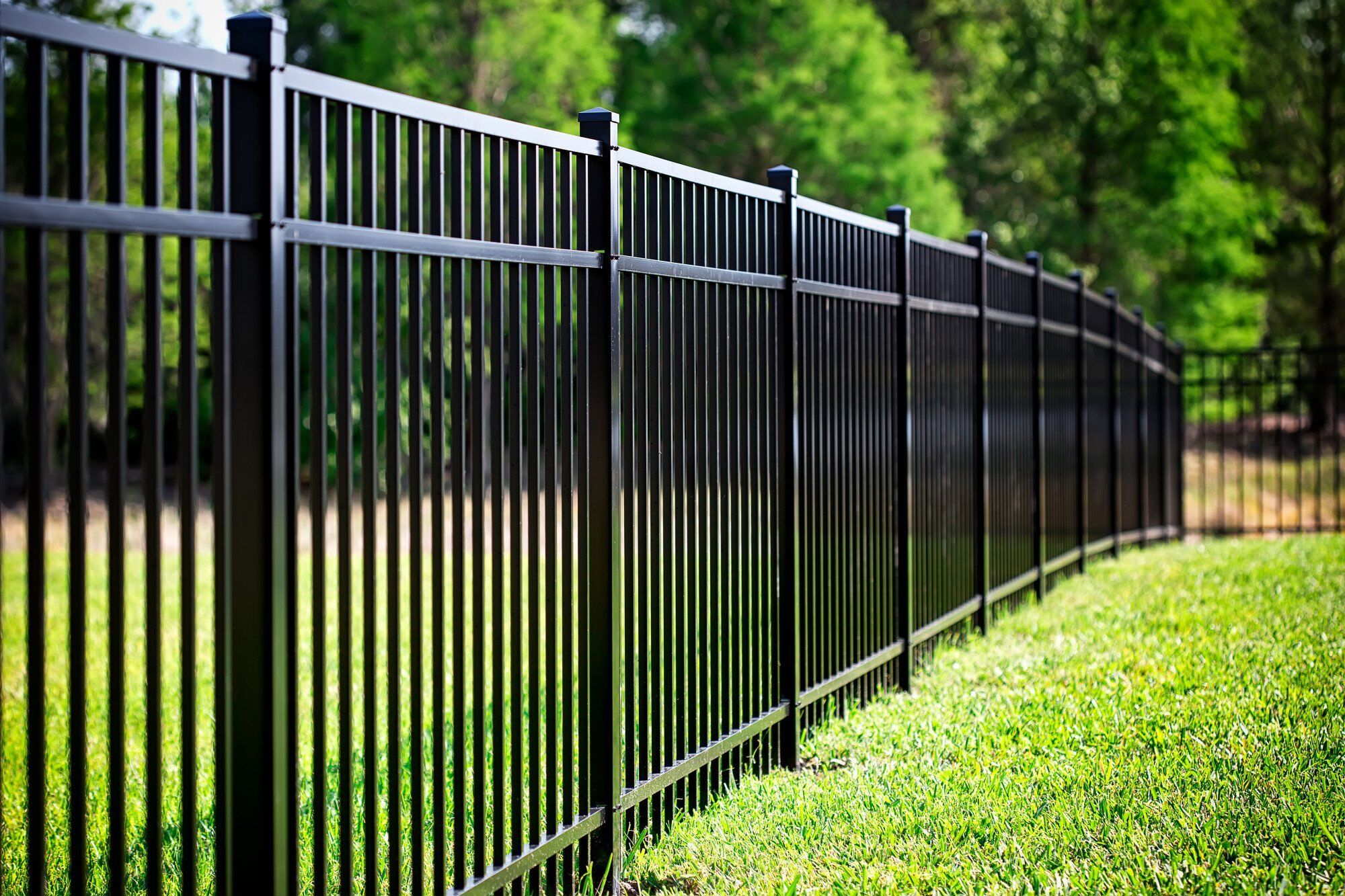All Categories
Featured

When it comes to choosing the most effective secure fencing product for longevity, wrought iron stands apart as one of one of the most durable and reliable options offered. Known for its strength, aesthetic charm, and capability to withstand different climate conditions, functioned iron is a popular choice for both business and residential residential properties. How does it contrast to other fencing materials in terms of durability and performance? Allow's take a better check out functioned iron fence and exactly how it piles up against choices like plastic, timber, and light weight aluminum.
Strength and Long Life of Wrought Iron Secure Fencing. Unlike several other fencing choices, functioned iron can withstand rough ecological problems, consisting of extreme warmth, heavy rain, and also solid winds. Due to the fact that it is a metal, wrought iron is not prone to the wear and tear that wood fencings usually experience, such as rotting, bending, or insect problems.
Resilience: Wrought iron fences are incredibly challenging and can stand up to effects and various other types of physical tension that could damage various other products. When appropriately preserved, they can last for 50 years or even more, making them a financial investment that will certainly offer lasting value.
Wrought Iron vs. Wood Fence. Wood fencings, while typical and cosmetically pleasing, typically need more maintenance and have a much shorter life-span compared to functioned iron. Timber is prone to rot, termites, and weathering gradually, every one of which can jeopardize its structural honesty. Furthermore, timber fences may require to be replaced or repaired every 10 to 20 years, depending upon the climate and the kind of timber made use of.
Upkeep: While wood fences need to be regularly treated with discolorations, paints, or sealants to keep their appearance and longevity, wrought iron fences typically need a lot less maintenance. They may need periodic cleaning or repainting to protect against rust, specifically in seaside or damp areas, yet they won't endure from the same kinds of deterioration as timber.
Longevity: While a well-kept wood fencing may last 20 to 30 years, functioned iron can go beyond that life expectancy by a number of decades, making it a much more sturdy choice over time.
Wrought Iron vs. Plastic Fence. Plastic fencing has become a prominent option to timber due to its low upkeep and resistance to the aspects. Unlike timber, vinyl doesn't rot or warp, and it doesn't require to be repainted or treated.
Longevity: While vinyl is immune and fairly resilient to rot and fading, it still can not match the lasting stamina and strength of functioned iron. A vinyl fencing may last around 20 to 30 years, depending on environmental variables, yet it does not have the structural stability that wrought iron supplies.
Upkeep: Vinyl calls for marginal upkeep contrasted to wood, but it can still fade over time, specifically in locations with intense sun exposure. Wrought iron might need occasional corrosion avoidance therapies however generally requires less treatments than vinyl.
Wrought Iron vs. Aluminum Fencing. Light weight aluminum is one more steel option to wrought iron, and while it shares a few of the toughness qualities of functioned iron, it is typically less solid and sturdy. Aluminum is extra resistant and lightweight to rust and rust, making it a prominent selection for low-maintenance secure fencing. Nevertheless, it's not as solid as functioned iron and might be a lot more prone to denting or bending under pressure.

Toughness: Wrought iron is dramatically more powerful and a lot more resilient than aluminum. While light weight aluminum fencings can last for a number of years, they may not hold up also in high-impact or high-traffic areas. In comparison, wrought iron is far more immune to physical damage and can better endure stress and pressure.
Upkeep: Both wrought iron and aluminum fencings call for some upkeep, mainly to prevent rust. Nonetheless, aluminum is less likely to corrosion than functioned iron, making it a much more low-maintenance choice in locations with high moisture or coastal salt exposure.
Final Ideas: Wrought Iron's Sturdiness Advantage. Wrought iron stands apart as one of the most long lasting fencing products readily available, surpassing timber, vinyl, and light weight aluminum in regards to stamina, long life, and total performance. While it does need periodic upkeep, especially to stop rust, its capacity to hold up against extreme climate condition, physical anxiety, and the examination of time makes it an outstanding financial investment for companies and homeowners searching for a long-lasting, safe fencing option.
For those who prioritize stamina and durability above all else, functioned iron is an unequalled selection. Whether you're securing a property, boosting the appearance of your yard, or offering safety and security for a commercial site, functioned iron fence will certainly offer years of resilience and aesthetic appeal that few other materials can match.
Latest Posts
Check Out the Premier Auto Repair Deals in Montclare, Chicago
Published May 29, 25
1 min read
Check Out the Premier Auto Repair Discounts in Montclare, Chicago
Published May 28, 25
1 min read
Uncover Cost-Effective Auto Repairs with Montclare’s Monthly Service Specials
Published May 27, 25
1 min read